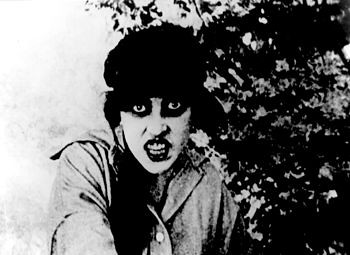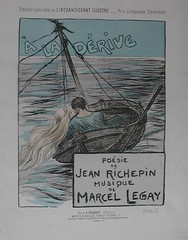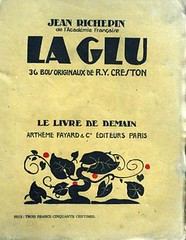Pierre-Joseph Proudhon @200
![Anarchy in Palermo by lulazzo [non vede, non sente, non parla]](http://farm3.static.flickr.com/2250/1786532628_a97233f55d_m.jpg)
Click for image credits
Pierre-Joseph Proudhon(1809 – 1865), who I mentioned here[1], was a French anarchist. He was the first individual to call himself an “anarchist” and is considered among the first anarchist thinkers. He was a workingman, a printer and autodidact. Proudhon is most famous for his assertion that “Property is theft!“, in What is Property? Or, an Inquiry into the Principle of Right and Government (original title: Qu’est-ce que la propriété? Recherche sur le principe du droit et du gouvernement), his first major work, published in 1840.
The book’s publication attracted the attention of the French authorities. It also attracted the scrutiny of Karl Marx, who started a correspondence with its author. The two influenced each other: they met in Paris while Marx was exiled there. Their friendship finally ended when Marx responded to Proudhon’s The System of Economic Contradictions, or The Philosophy of Poverty with the provocatively titled The Poverty of Philosophy.
My fave quote of him I saw once written on several carriages of a train in Antwerp Central Station.
“To be GOVERNED is to be watched, inspected, spied upon, directed, law-driven, numbered, regulated, enrolled, indoctrinated, preached at, controlled, checked, estimated, valued, censured, commanded, by creatures who have neither the right nor the wisdom nor the virtue to do so. To be GOVERNED is to be at every operation, at every transaction noted, registered, counted, taxed, stamped, measured, numbered, assessed, licensed, authorized, admonished, prevented, forbidden, reformed, corrected, punished. It is, under pretext of public utility, and in the name of the general interest, to be place[d] under contribution, drilled, fleeced, exploited, monopolized, extorted from, squeezed, hoaxed, robbed; then, at the slightest resistance, the first word of complaint, to be repressed, fined, vilified, harassed, hunted down, abused, clubbed, disarmed, bound, choked, imprisoned, judged, condemned, shot, deported, sacrificed, sold, betrayed; and to crown all, mocked, ridiculed, derided, outraged, dishonored. That is government; that is its justice; that is its morality.” (Pierre-Joseph Proudhon)









![Anarchy in Palermo by lulazzo [non vede, non sente, non parla]](http://farm3.static.flickr.com/2250/1786532628_a97233f55d_m.jpg)